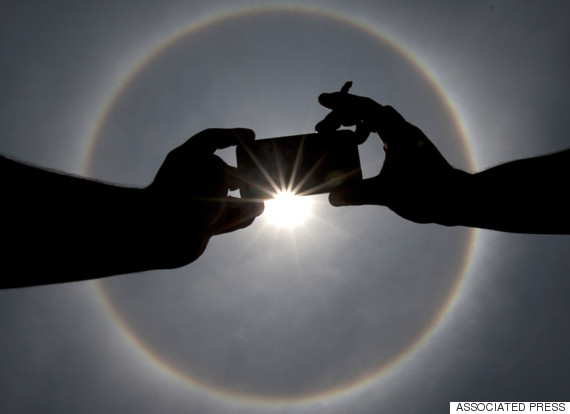Residents of Mexico City were treated to an amazing spectacle on Thursday when a halo formed around the sun above the Mexican capital.
Haloes like this one appear around the sun or moon when light is refracted by ice crystals in high-altitude clouds. The most common type is called a "22-degree halo" because the ring of refracted light is 22 degrees from the sun.
Despite the benign explanation for the phenomenon, some thought it was a cause for concern.
"I have received some 30 phone calls from people who are scared and think that it's a bad omen, others think it means it will rain more than expected," the coordinator of the National Weather Service, Juan Manuel Caballero, told Agence France-Presse.
A few city residents in the streets thought it might be a sign of the end of the world, or perhaps an alien invasion, reported El Universal newspaper.
"It's very common. The thing is that people never look up," Caballero told AFP.
Others found humor in the halo and posted jokes and memes about it.
Raul Flores, the president of Mexico City's chapter of a top political party called the Party of the Democratic Revolution, tweeted a photo of the halo with his party's logo inserted and said it was a good sign.
Took a look at more photos of the halo below.




Related
Before You Go











